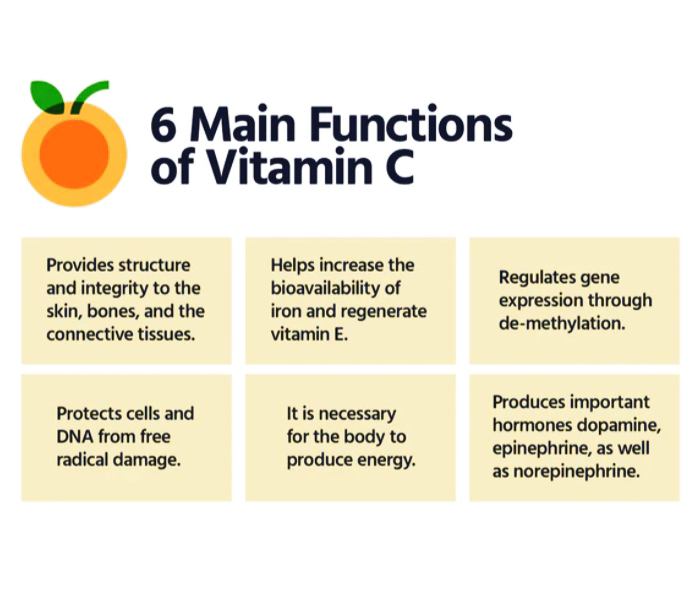Vitamin C, or ascorbic acid, is vital for growth, development, and repair of body tissues, playing a key role in collagen formation, iron absorption, immune function, wound healing, and maintaining cartilage, bones, and teeth.
Here's a more detailed breakdown of Vitamin C's functions:
1. Collagen Formation:
Vitamin C is essential for the synthesis of collagen, a crucial protein that forms the foundation of skin, tendons, ligaments, and blood vessels. It is involved in all phases of wound healing, including collagen synthesis, maturation, secretion, and degradation.
2. Iron Absorption:
Vitamin C enhances the absorption of iron, particularly iron from plant-based sources.
It helps convert iron into a form that is easier for the body to absorb.
3. Immune System Function:
Vitamin C supports the proper functioning of the immune system. It stimulates neutrophil migration to the site of infection, enhances phagocytosis and oxidant generation, and microbial killing.
4. Wound Healing:
Vitamin C is essential for wound healing, contributing to the formation of scar tissue. It is involved in all phases of wound healing, including the inflammatory phase where it is required for neutrophil apoptosis and clearance.
5. Antioxidant Properties:
Vitamin C acts as a powerful antioxidant, protecting cells from damage caused by free radicals.
It helps neutralize these harmful molecules, reducing oxidative stress.
6. Other Functions:
Vitamin C helps maintain cartilage, bones, and teeth.
It plays a role in the absorption of folate.
It is involved in the synthesis of certain neurotransmitters.





No comments:
Post a Comment